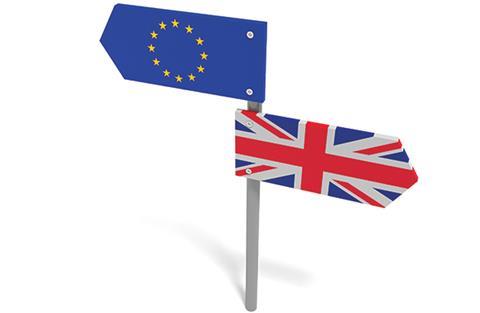Following the publication of final plans for the Border Target Operating Model (TOM) on UK-EU trade, the UK meat industry has warned that further delays to the controls' implementation could add costs and create complications for businesses.

Post-Brexit border controls on imports from the EU have been officially delayed again, the UK Government has confirmed. Requirements such as controls on Sanitary and Phytosanitary (SPS) goods were originally due to be introduced on 1st October 2021. The latest announcement marks the fifth delay of its kind.
Within its latest report, the UK Government explained that SPS border controls will come into effect on 31st January 2024.
A spokesperson for the British Meat Processors Association (BMPA) said the trade body had been expecting a delay in implementation but “simply shifting the deadline to January doesn’t address [a] more serious, underlying issue.”
The Association of Independent Meat Suppliers (AIMS) welcomed the announcement but, like BMPA, expressed its frustration that “nothing will be live until 31st January 2023, a further three-month slip.”
A spokesperson for AIMS said: “With the Government already recognising the risk to the UK from animal diseases such as ASF, HPAI and FMD, as detailed in their recent Risk Register we would have expected that delays such as the one announced today would not have been allowed to occur.”
The National Pig Association (NPA) has also weighed in on the latest announcement. Charlie Dewhirst of the NPA said: “Whilst we understand the Government’s reasoning, this is now the fifth delay in implementing physical checks on goods entering the country, the lack of which is exposing the UK to potentially devastating notifiable diseases like African swine fever.
“ASF is a concern that both the Defra Secretary and Farming Minister have highlighted in recent months and is clearly identified as a threat in the Government’s own Border Target Operating Model documentation published today.”
The outline for the model, published on 29th August, sets out the Government’s final plans for a new Border Target Operating Model that incorporates and responds to feedback from industry stakeholders. It was developed with further collaboration across the UK, Scottish and Welsh Governments, and engagement with officials from the devolved administration in Northern Ireland.
This sits alongside the ongoing review of customs declarations announced within the Spring Budget 2023, which is exploring potential simplifications for both import and export customs declarations.
Officials believe that the TOM represents “one of the most intelligent and data-driven models in the world."
Three major milestones
The UK Government said that it intends to implement the model through three major milestones:
- 31st January 2024 - The introduction of health certification on imports of medium risk animal products, plants, plant products and high-risk food and feed of non-animal origin from the EU. The removal of pre-notification requirements for low-risk plant and plant products from the EU.
- 30th April 2024 - The introduction of documentary and risk-based identity and physical checks on medium risk animal products, plants, plant products and high risk food and feed of non-animal origin from the EU. Existing inspections of high risk plants/plant products from the EU will move from destination to Border Control Posts.
In April, the Government will also begin to "simplify" imports from non-EU countries. This will include the removal of health certification and routine checks on low risk animal products, plants, plant products from non-EU countries as well as reduction in physical and identity check levels on medium-risk animal products from non-EU countries.
- 31st October 2024 - The requirement for Safety and Security declarations for imports into Great Britain from the EU or from other territories where the waiver applies will come into force from 31st October 2024 as set out in the original Target Operating Model.
Reality ‘far from’ what was promised
Responding to the Government's latest report on TOM, BMPA said: “When we left the EU, we were promised frictionless trade with Europe, but the current reality falls far short of that.
“When the Target Operating Model is eventually implemented, it will add another level of complication, delay and extra cost to our trade with our nearest and biggest trading partner, who we rely on for a large proportion of our food supply. Yes, it will level the playing field as the same barriers to trade are finally applied to imports as well as exports, but it will make the food that we need to import more expensive. It will also discourage some EU exporters from supplying into the UK market, preferring instead to sell to markets with fewer trade barriers.”
It added: “In order to provide enough meat to British customers, our meat producers rely on the ability to export parts of the animal for which there is no market here in the UK. We also need to import products that we don’t produce enough of here. We need our nearest, most lucrative export market to make the meat supply chain work properly.”
The BMPA argues that that there is “a simple, pragmatic solution” that would restore the UK and EU’s two-way trade in food to “the efficient, cost-effective system it was before, but without the need to re-join the EU.” That solution, the trade body argues, is a common veterinary agreement, which would simply formalise the UK’s adherence to the food standards that it already follows to trade with the EU.
This story was originally published on a previous version of the Meat Management website and so there may be some missing images and formatting issues.












